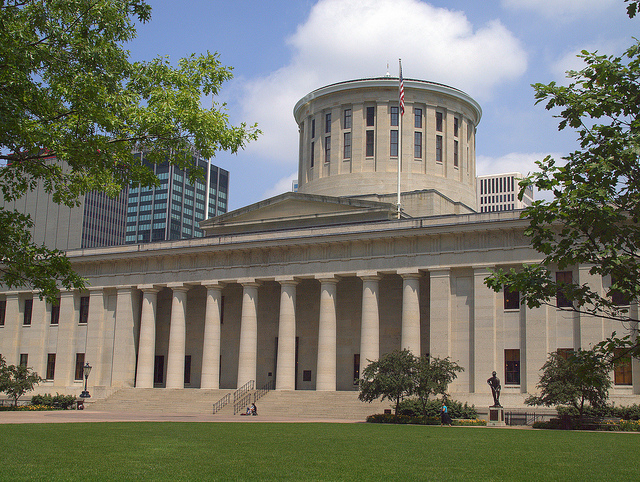
Today, the Ohio House’s Committee on State and Local Government will hold a hearing on HB 121, legislation that would yield significant taxpayer savings by opening up competition for water infrastructure.
HB 121, if enacted, would save the state’s taxpayers millions of dollars per year by lifting local laws that restrict which piping materials can be used for water infrastructure projects. As is the case in other states, a number of cities and counties throughout Ohio dictate what materials can be used, which results in higher costs for taxpayers across the Buckeye state.
According to the American Chemistry Council, the average cost to replace water pipes in a “closed competition” jurisdiction is $51.83 per foot. In a city like Columbus that utilizes such a system, these costs can amount to almost $300,000 per mile. Compare that with nearby Delaware County, which does not impose such restrictions and has a competitive market for pipe materials. Their capital costs are a modest $33.33 per foot, which saves taxpayers a whopping $97,680 per mile when stacked up against cities like Columbus. It is estimated that by ensuring open competition across the country through the lifting of local restrictions, the cost savings could add up to more than $317 billion nationally.
ATR sent the following letter to Ohio lawmakers urging them to support open competition and reduced costs by voting Yes on HB 121:
Dear Representative,
On behalf of Americans for Tax Reform and our supporters across Ohio, I urge you to support House Bill 121, legislation that would enable Ohio to rebuild its aging water infrastructure while reducing costs to taxpayers through open competition.
Arcane laws and procurement codes in many localities across the country, including Ohio, restrict the piping materials that can be used in water infrastructure projects, without consideration for project specifics. These restrictions prohibit the use of other materials that are longer lasting, better performing, and less costly to taxpayers. Such restrictions on piping materials represent classic protectionism, and another example of public policy that picks industry winners and losers.
In this case, the big losers from local closed competition statutes for water infrastructure are taxpayers, who are forced to pay the heightened costs of lower-performing piping materials whose use is mandated. Enactment of HB 121 would fix this problem by opening competition to all piping materials, which would yield significant taxpayer savings.
Take Franklin County, which has a closed competition policy on water infrastructure, compared to Delaware County. Delaware County, unlike Franklin, allows for open competition. As a result, the average per mile cost of water infrastructure piping in open competition Delaware County is $97,680 less than closed competition Franklin County. Those are real taxpayer savings.
HB 121 is a free market, pro-taxpayer reform that deserves your support. ATR will be educating your constituents and all Ohio taxpayers as to how lawmakers in Columbus vote on HB 121, and other important fiscal and economic matters throughout the legislative session. Please look to ATR to as a resource on tax, budget, and other policy matters pending before you.
Sincerely,
Grover G. Norquist
President
Americans for Tax Reform

